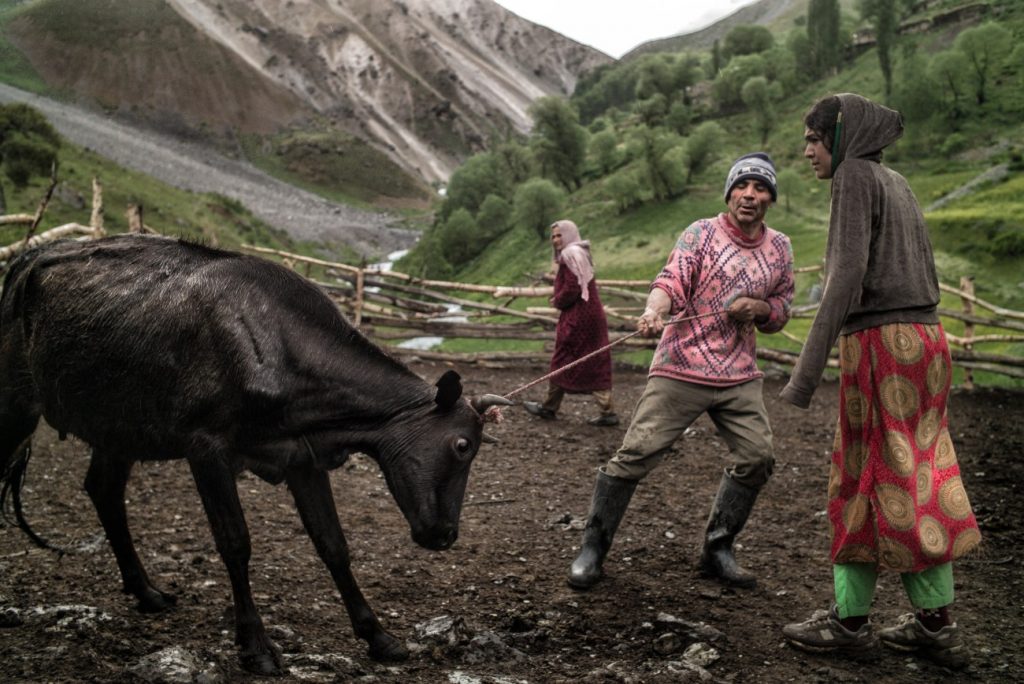After travelling around the North Caucasus and meeting the various tribes – or Tieps – who inhabit the mountains there, I became fascinated by cultures and tribes who have, in the face of war, oppression and displacement, managed to maintain their ancient culture for centuries. I was recently lucky enough to be invited to write a blog on the Yaghnobi, a culture and people from Central Asia who are a prime example of cultural survival against all odds, and who has seen relentless turmoil, oppression and misunderstanding by the many empires that have conquered their land.
The Yaghnobi represent an ethnic minority in modern day Tajikistan numbering around 7,500 – 10,000 but are not native to the area and are descendants of the people who once made up the ancient kingdom of Sogdia, which covered most of Central Asia between the 6th century BC and the 11th century AD. It was the dominant force in the region until the Islamic conquests of Central Asia saw its defeat. Subsequent Islamic caliphates and brutal leaders forced many of the ancient Sogdians fleeing to the Yaghnob Valley to escape and their descendants continued to live there isolated and at peace until the early 1800s. The typical vocations of the Yaghnobi were in agriculture and traditional crafts. Unlike most patriarchal tribes in Central Asia, weaving was done by men and women worked as potters.
I’ve heard the pro-Soviet argument that the USSR conquest of Central Asia civilized the region through order and industrialization. The fate of the Yaghnobi however, is a direct contradiction of that. Despite their escape to isolation from Islamic conquests and oppression, in the 1930s the Yaghnobi discovered that despite being completely self-sufficient and far from roads and power lines, the Soviet Union still found them – unfortunately for them, during the period of the great purge. Many of the Yaghnobi were exiled or displaced and forced to resettle in a foreign land. Communist officials ensured their sacred religious books, some of which were over 6 centuries old, were destroyed and their ethnicity was abolished by the central government. All of which obviously traumatized the population.

Just as the Yaghnobi were trying to come to terms with the horrors of the Stalin era, in 1970 a fleet of Red Army helicopters appeared over the horizon and arrived in the valleys. Under the pretext that the Yaghnobi villages were under critical threat from impending avalanches, they proceeded to ‘evacuate’ the entire population. Anybody who resisted was gunned down on the spot and the Yaghnobi were once again dragged from their isolated mountain homes and sent to the desert lowlands of Tajikistan. Many died of heart attacks and shock whilst being transported on helicopters, their simple mountain life leaving them unable to comprehend the modern, parallel world that existed outside of the valleys. Upon relocation, the Soviets hastily placed them on cotton plantations to carry out forced labour. This killed hundreds of the Yaghnobi as a result of rapid change in lifestyle and climate. A docile people, the horrendous treatment under the Soviet led many of the Yaghnobi to rebel and flee the cotton plantations and return to their natural homeland in the mountains. But to their horror, they found that the Soviet army had destroyed all of the empty villages, erasing them from all official maps. But they rebuilt and many families have slowly began to return to the valley.
Due to assimilation with the Tajiks, the Yaghnobi of the plains are predominantly Sunni Muslim, whilst those who have returned to the valleys still preserve and practise pre-Islamic religion such as Zoroastrianism and to this day often remain largely cut off from electricity, and trails connecting them to the outside world are hard and treacherous. Their language, also called Yaghnobi, is a linguist’s dream (or nightmare), being a fascinating blend of Persian, Ossetic, Pamir and Pashto. It is estimated that there are only around 25,000 people worldwide who speak the Yaghnobi language.
For private custom tours to meet the Yaghnobi and other isolated tribes around the world, contact YPT and we can make it happen!





